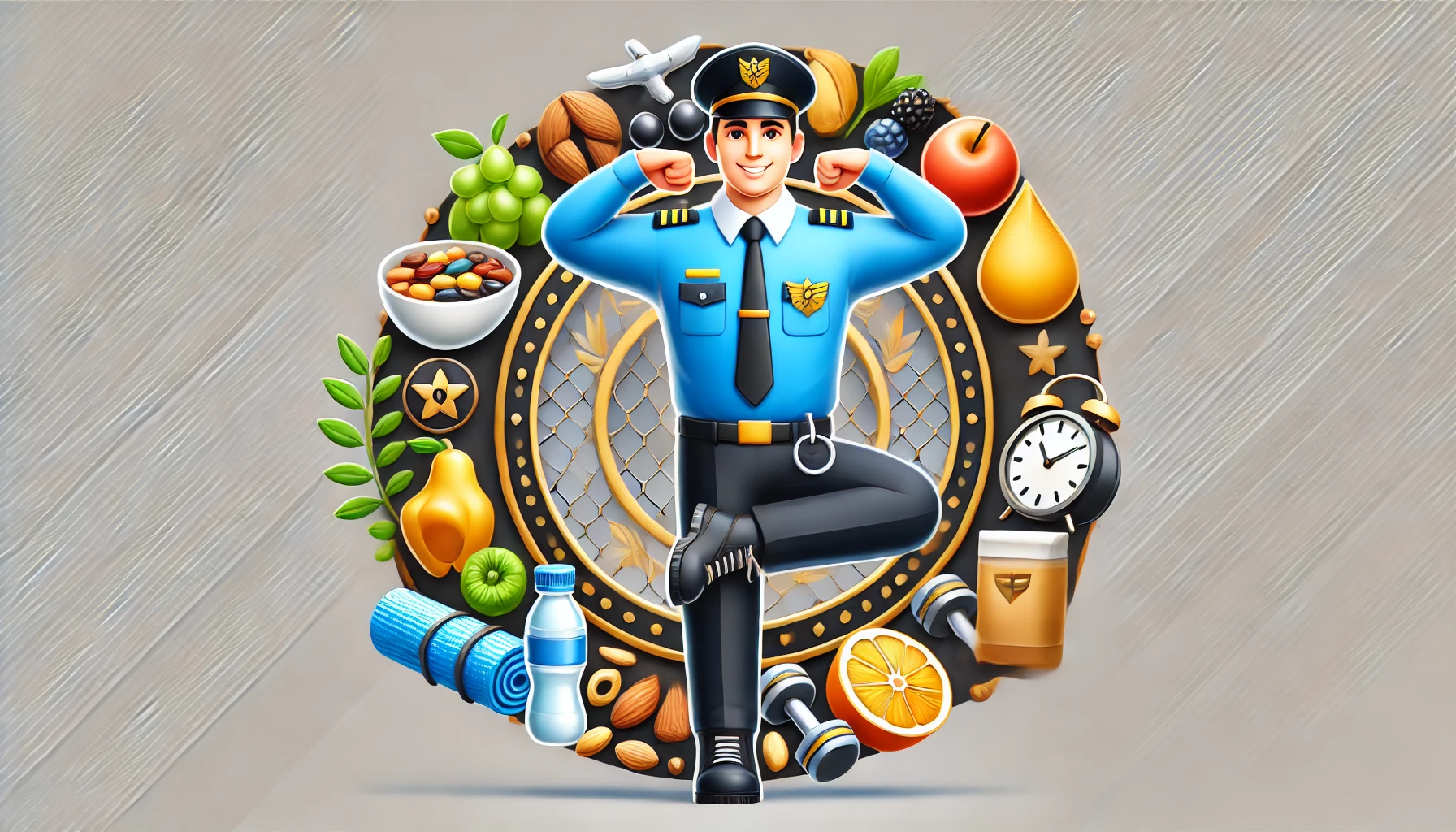Maintaining physical health is crucial for security guards. Long hours, irregular shifts, and the job's physical demands can take a toll. However, with the right nutrition and fitness routines, security guards can stay fit and alert, ensuring they perform their duties effectively. This blog post will provide practical tips for property managers, chief security officers, and security company hiring managers to help their teams maintain optimal health.
The Importance of Nutrition
Balanced Diet
A balanced diet is the cornerstone of good health. Security guards should aim for meals that include:
- Proteins: Lean meats, fish, eggs, beans, and nuts.
- Carbohydrates: Whole grains, vegetables, and fruits.
- Fats: Healthy fats from avocados, nuts, and olive oil.
- Hydration: Plenty of water throughout the day.
Meal Planning Tips
Planning meals can be challenging for security guards due to unpredictable schedules. Here are some tips:
- Prep Meals in Advance: Prepare weekly meals to avoid unhealthy snacks.
- Healthy Snacks: Keep nuts, fruits, and yogurt handy.
- Avoid Fast Food: Opt for healthier alternatives like salads or wraps.
Portion Control
Eating the right portion sizes helps maintain energy levels without overeating. Smaller, frequent meals help maintain alertness and energy throughout long shifts.
Fitness Routines for Security Guards
Strength Training
Strength training is essential for the physical demands of security work. It helps in muscle building and improving overall strength. Suggested exercises include:
- Weightlifting: Incorporate squats, deadlifts, and bench presses.
- Bodyweight Exercises: Push-ups, pull-ups, and lunges.
Cardiovascular Exercises
Cardio workouts improve heart health and stamina. Recommended activities:
- Running or Jogging: Great for endurance.
- Cycling: Good for joint health.
- Swimming: Full-body workout.
Flexibility and Mobility
Flexibility exercises help prevent injuries and improve movement efficiency. Incorporate:
- Stretching: Daily stretching routines.
- Yoga: Enhances flexibility and reduces stress.
Tailoring Routines to Security Work
Shift-Specific Tips
Security guards often work in shifts. Here’s how to adjust routines:
- Morning Shifts: Start the day with a light workout and a balanced breakfast.
- Night Shifts: Ensure you’re well-rested before the shift. Opt for workouts that energize but don’t overexert.
Quick Workouts on the Job
Finding time for exercise during shifts can be tough, but short, effective workouts can help:
- Desk Exercises: Leg raises, seated marches, and shoulder shrugs.
- Short Walks: Take brief walking breaks to stay active.
Mental Health and Wellness
Stress Management
Mental health is as important as physical health. Techniques to manage stress include:
- Meditation: Helps calm the mind and improve focus.
- Deep Breathing Exercises: Reduces anxiety and enhances relaxation.
Sleep Hygiene
Adequate sleep is crucial for recovery and performance. Tips for better sleep include:
- Consistent Sleep Schedule: Try to maintain a regular sleep pattern.
- Sleep Environment: Create a quiet, dark, and cool sleeping environment.
FAQs
What should security guards eat before a shift?
A balanced meal with proteins, carbs, and healthy fats. Examples include grilled chicken with quinoa and vegetables or a turkey sandwich on whole-grain bread.
How can security guards stay active during long shifts?
Incorporate short exercises like walking, stretching, or desk exercises. Small breaks for physical activity can make a big difference.
What are the best snacks for security guards?
Healthy snacks like nuts, fruits, yogurt, and protein bars help maintain energy levels without unhealthy spikes in blood sugar.
How much water should security guards drink?
Aim for at least 8-10 glasses of water a day. Staying hydrated is crucial for maintaining energy and focus.
Can security guards work out during their shift?
Yes, quick exercises like leg raises, shoulder shrugs, and short walks can be done during breaks to stay active and alert.
By following these tips, security guards can maintain their physical health and perform their duties more effectively. Proper nutrition and fitness routines are not just about looking good; they are about feeling good and staying alert, which is essential for the safety and security of the properties they guard.
.png)
.png)
.png)

.png)
.png)

.png)
.png)
.png)
.png)
